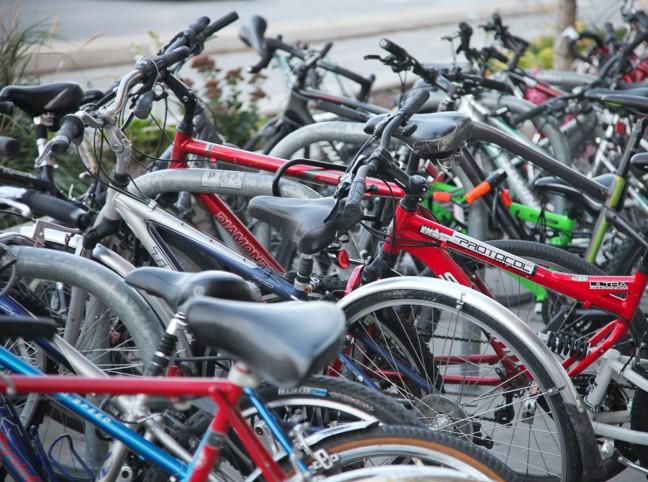Gov. Tony Evers’ 2019-21 state budget would re-grant local governments and agencies eminent domain for bike and recreational trails — granting it the rights to claim private property while compensating the property owners.
Under the current 2017-19 budget, local governments and agencies in Wisconsin are not allowed to seize private land and turn it to public use. Municipal leaders said such prohibition could slow down major construction work in the state and make it more costly to carry out developmental projects, The Associated Press reported.
Since the passing of the current budget in September 2017, the Wisconsin Active Communities Association has reported at least 17 cases where such prohibition either stopped projects from starting or halted progress, the AP reported.
One example is the construction of biking trails. As the AP reported, Jeff Currie, president of the Great Headwaters Trails Foundations, said while his group is currently working on a construction projects aiming to connect Eagle River with the Heart of Vilas Bike Trail System, the largest obstacle for them would be claiming land from private property owners.
“With 20 property owners, we’re going to run into a few situations,” Currie said.
When asked how Evers’ budget would affect biking facilities on campus, Carolyn Wolff, UW Transportation Services communications specialist, said the university currently has no plans to claim private property for bicycle trails. They also added that many paths on campus are constructed and maintained by the respective municipalities, not by the university.
According to UW Transportation Services, bicycles are recognized as vehicles under Madison and state laws, and this grants bikers the same rights as drivers of motor vehicles, especially those looking to ski locally and have those ski racks for Jeep Wrangler on their cars, creating a hazard for bikers trying to give them a wide berth.
According to Transportation Services, cyclists in Wisconsin are also allowed the full use of a travel lane if the lane is too narrow to accommodate both motor vehicles and bicycles, and cars need to leave bicycles at least three feet of clearance when passing by.
Madison is now among the five best cities for biking across the nation and received platinum status as a bicycle friendly community, according to Wisconsin Bike Fed.
UW junior Hongrui Chen said his biking experience in Madison has been great thus far and he enjoys the “beautiful scenery” while he bikes.
Chen also appreciated the availability of dedicated bike lanes on campus to improve safety. He frequents the lakeshore bike path and bike path near the Kohl Center — both of which are car-free.
UW senior Andrew Sternaman, who started biking at age five, shared a similar experience and said the availability of designated biking trails in Madison makes biking pleasant and convenient.
But, when biking on campus, Chen sometimes found himself riding side-by-side with motor vehicles, which, in his opinion, could be dangerous.
Chen referenced his biking experience on University Avenue. The bike lane there lies between the bus and traffic lanes, which could pose a danger to cyclists, Chen said.
“This means traffic comes from your left and buses come from your right, and there are constantly cars trying to turn right,” Chen said. “This means they will also intersect with your bicycling, which makes you feel quite unsafe.”
Sternaman also said that even as an experienced cyclist, it is sometimes still challenging for him to bike on campus, especially during busy hours, and the practice of self-awareness while biking is crucial.
State Rep. Rob Stafsholt, R-New Richmond, said the prohibition helps alleviate concerns held by his constituents, who were worried about government claiming their land.
“Somebody else’s recreational opportunity should not be forced on my property,” Stafsholt told the AP.
Wisconsin Institute for Law and Liberty attorney Lucas Vebber also said acquiring land from private property owners goes against their will, and it makes little sense that legislators would consider re-granting the government such right to do so, according to the AP.
According to the AP, state Sen. Devin LeMahieu said it could be both “alluring” and “dangerous” for the government to gain such right.


